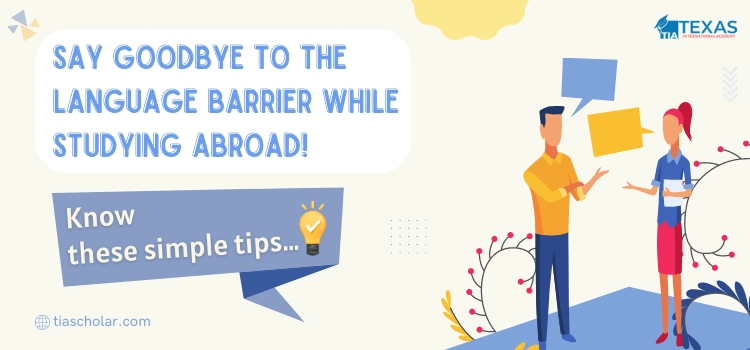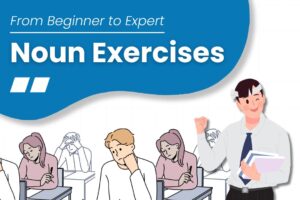
Students who move abroad for studies often face a problem in getting comfortable with the native language of the country they move to. This can have serious consequences on both their academic and social life, as they may feel left out in certain situations. If you ever get placed in such situations, it’s important to remember that you are not alone. There is nothing wrong from your end, and it’s absolutely normal for any person who moves to a new country to face the issues caused by the linguistic barriers of communication or intercultural communication.
So, let’s figure out some practical tips to tackle the language barrier using which students who move abroad can concentrate better on their studies and also build strong relationships with both local as well as international students of different cultural backgrounds.
Connect with people who are comfortable speaking English
No matter which country you choose as your study abroad destination, it’s highly likely that you will find a good number of English speakers around you. So, to not feel alone and get yourself comfortable in a new place, it’s better to connect with those who have a common language to speak with. By doing so, you don’t get overwhelmed in the beginning itself and make good friendships over time. You can find English-speaking friends either from India or from native English-speaking countries. As soon as you feel that you have a good number of people in your network, it’s time to cross the boundary and explore the local language to break the walls of language barriers.
Involve in language exchange with locals
As much as you worry about not being able to speak the local language, that much worry exists in the minds of some locals for not being able to speak English properly. If you ever come across such people, grab that opportunity and make them your language-learning partner. This way, you will have a great time making new friends and learning their language and culture and can also exchange your knowledge with them. In non-English-speaking countries, there has always been this hunger to speak better English, and if you can help local people with this, they will be more than happy to help you in learning their language. If you find people who are interested in learning your native language rather than English, then it’s even more fantastic.
Try to learn the language of the locals:
Apart from college, most of the time, you may face the need to communicate with the locals for various reasons. It can be while buying groceries or while commuting from one part of the city to the other. So, it’s worth investing some time in learning the basics of the local language of the place in which you are studying to overcome language barriers in communication. For some reason, it may not seem necessary to learn a new language in a place we hardly study for a few years. But studying abroad is not just for excelling in studies. It’s about a brand new learning experience, and learning a new language should be one among them.
Let’s check out some of the ways to get comfortable with the local language.
Use free tools like Google Translate
Right after landing in your destination country, one of the first things to do is to download the google translate app on your device. It greatly helps in simple activities like buying food, talking to the cab driver, etc. This mostly helps in emergency situations and does not really give the vibe of learning a new language. But, as long as a tool sorts out some level of an issue, we should not ignore it.
Sign up for free language learning platforms
There are numerous language learning platforms on the internet that are available free of cost. Duolingo is a good example of such a platform. For these platforms, there are no limits to how many people you can reach in the world. There are hundreds of languages you can learn, and the access is at your fingertips. These platforms are not just for learning a new language but can also help in making good friendships with like-minded people across the world.
Watch movies and TV shows in the local language
Who hates watching TV shows? But the problem over here is people usually binge-watch shows to get entertained, and here, in this case, you will be supposed to watch for the sake of learning, and you may not enjoy the process if you are not passionate about learning a new language. It can be so daunting to stare at the screen if you do not understand the single dialogue over there. That may happen only in the initial days, but soon after, you will be able to understand the language better and tackle the language barrier issue while studying abroad.
Join the game clubs and communities
Passion is what builds friendships, and if you interact with those who share common interests with you, it will be quite easier to start conversations and get yourself comfortable with the process of learning a new language. But where can you find such people with common interests? Well, that’s when the game clubs and communities come into play. These communities of passionate people with common interests give foreign nationals like you to get used to their language.
Learn greetings and basic vocabulary of the local language
If you think it’s not time worthy to learn a new language and you have some other priorities because of which you are not able to get enough time to explore a new language, consider learning the basics of the local language, which helps you in getting basic things done. By doing so, you may not be able to involve in conversation with locals, but for sure, you can get things done by yourself without the help of a translator. There are numerous resources on the internet to learn the basic stuff of almost any language in the world. So, make use of them, and you will never feel language is a barrier to your growth.
Language barrier VS Communication barrier
Learning a new language and getting comfortable with communication are two different things. There are many people who can’t communicate properly, even in their native languages. If there is no willingness to interact and express your thoughts and build meaningful conversations, there is no point in trying to learn a new language. So, language is secondary, and the intent to communicate is what matters in overcoming language barriers while studying abroad.
Academic language barrier VS Social language barrier
Unless the medium of instruction for your course is in a different language, you probably won’t face any academic language barriers. However, you, as an international student, have to prove language proficiency before enrolling in such courses. Just like international students use IELTS to prove English language proficiency, there will be tests for other languages as well if the medium of instruction is in a local language. The social language barrier is something that might affect your overseas education experience. But you can make use of the methods that we discussed so far in this blog to get yourself comfortable and speak confidently.
Is the language barrier a big concern for overseas students?
Not really. Overseas education is about many other amazing possibilities, and the language barrier might cause some inconvenience at some point, and it won’t significantly disturb either the academics or the social life of international students. The best part is even if an international student makes mistakes while speaking a local language, most probably nobody makes fun of them, and instead, they appreciate the effort and willingness to speak their language.
Hence, we can conclude that language barriers can be overcome quite effortlessly by following some simple steps which are both meaningful and exciting to international students.








